Families used to take these trips without blinking, but times have changed.
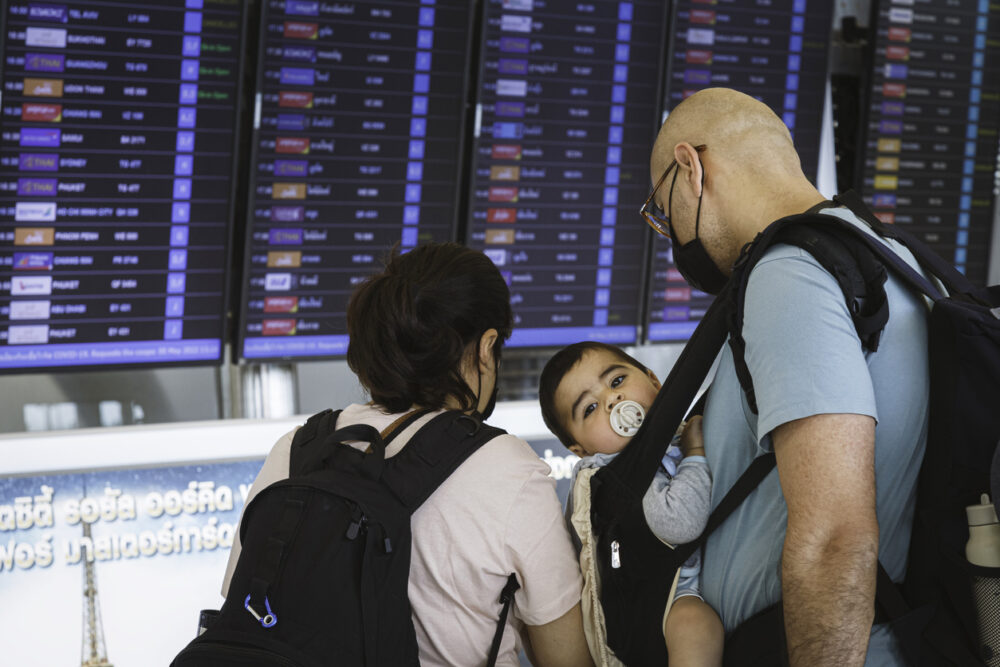
Vacations once served as the heartbeat of family life. Parents would load up the car, kids would cram into the backseat, and everyone accepted the long journey ahead as part of the adventure. Today, though, many of these beloved trips have quietly slipped away. Shifts in culture, technology, and finances have reshaped how families travel, leaving behind a list of classic vacations that younger generations barely recognize.
These trips weren’t always glamorous, but they created stories that families retold for years. Campgrounds, road trips, and theme parks offered simple pleasures that no longer hold the same charm. Instead, modern families often chase convenience, instant entertainment, or exotic Instagram-worthy destinations. The slower pace and quirky traditions of these older vacations feel like relics from another era. Here are 12 classic vacations families used to take that have mostly disappeared from the modern travel scene.
1. The long cross-country road trip.
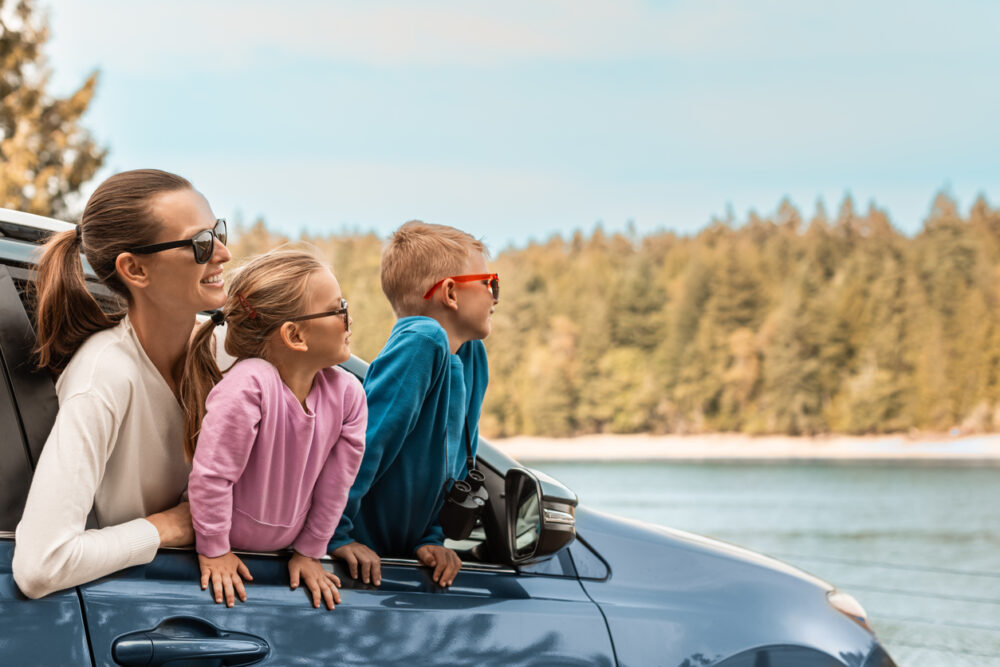
Families once spent weeks on the road, charting a course across the country with paper maps and guidebooks. Parents navigated winding highways while kids played license plate games in the backseat. The journey itself was the vacation, with roadside attractions, tiny diners, and countless motel stays along the way. People accepted that the drive took time and often embraced the unpredictability of flat tires, wrong turns, and detours, as shared by writers at Hilton Grand Vacations.
Today, cross-country drives have been largely replaced by cheap flights and quick getaways. The patience required for multi-day road trips doesn’t fit easily into packed work schedules or school calendars. Gas prices, traffic congestion, and the endless lure of screen-based entertainment have chipped away at the appeal. What once felt like an epic family bonding experience now seems exhausting to many, leaving these marathon drives as a nostalgic memory rather than a summer tradition.
2. The week-long camping trip.

For decades, families would pitch tents or park RVs at national parks, living with the bare essentials for a full week according to Lauren Dana Ellman at Travel + Leisure. Kids roamed freely, caught frogs in creeks, and told ghost stories around campfires. Parents cooked over open flames and unplugged from the rest of the world. The rougher conditions were part of the charm, offering a rare chance to disconnect and enjoy nature together.
Today’s families often prefer glamping or short weekend camping trips with plenty of modern amenities. The idea of sleeping on the ground for seven nights straight doesn’t appeal to many who crave comfort and convenience. Technology has also made it harder for people to unplug, while safety concerns and busier schedules discourage extended stays in the woods. That full-week rustic camping trip has become a rare commitment that fewer families are willing to make.
3. The visit to grandma’s house for the entire summer.

Generations ago, it was common for kids to spend weeks, even the whole summer, at their grandparents’ house. Parents would drop them off and head back to work, trusting grandma and grandpa to provide love, discipline, and plenty of homemade cookies. These long visits created strong bonds across generations and gave kids a different pace of life filled with simple pleasures.
Modern schedules, dual-income households, and fewer stay-at-home grandparents have made this tradition far less common, says Kelle Walsh at Experience Life. Grandparents today often live farther away, remain employed longer, or lack the energy to manage young kids for extended periods. Families also tend to plan shorter, more structured visits rather than leaving kids for an entire season. The summer-long grandparent vacation has slowly faded as lifestyles have changed.
4. The classic dude ranch experience.
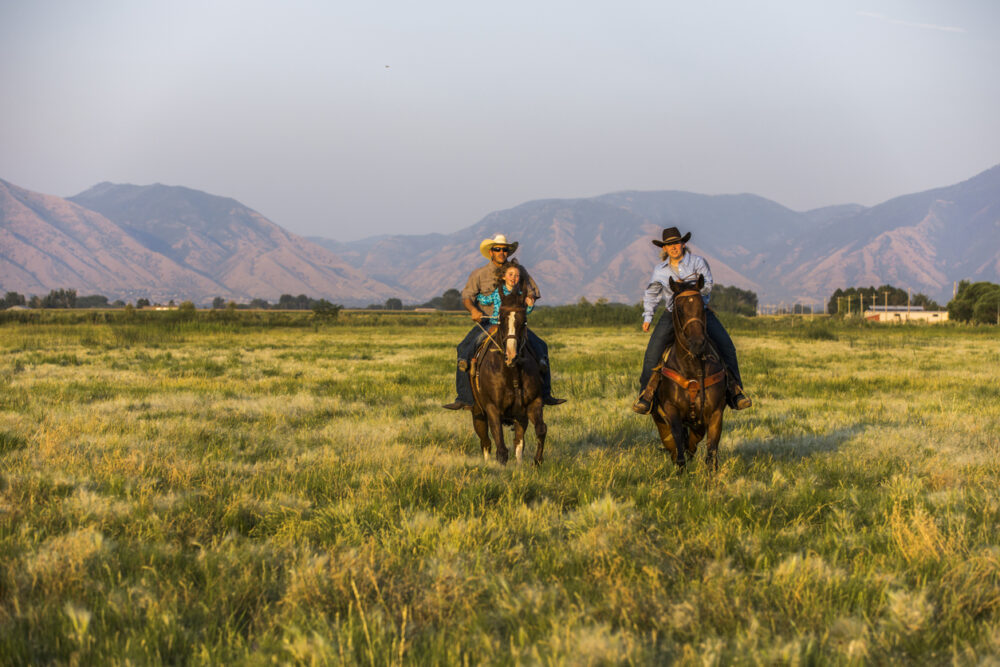
Families once flocked to dude ranches for horseback riding, cattle herding, and campfire singalongs. These vacations offered a taste of cowboy life, complete with boots, hats, and dusty trails. Kids learned to ride, parents relaxed with scenic views, and everyone gathered for hearty meals after a day outdoors. It felt adventurous and different without being too far from modern comforts.
Today, dude ranch vacations are far less common for families. Many see them as expensive niche experiences rather than affordable family getaways. As fewer people grow up with any connection to farm life, the appeal of learning to rope cattle has also dwindled. Families now lean toward beach resorts, cruises, or amusement parks, leaving dude ranches to serve a smaller, more specialized audience. The old-school cowboy vacation isn’t on most family bucket lists anymore.
5. The big family reunion at a rented lodge.

Renting a large cabin or lodge for an extended family reunion used to be a regular summer tradition. Cousins would run wild, aunts and uncles would catch up, and grandparents presided over the chaos with pride. Meals were often potluck-style, and activities included board games, campfires, and group hikes. These gatherings helped maintain family ties across generations and geography.
Now, organizing a big multi-family reunion feels like a logistical nightmare. Complicated work schedules, high travel costs, and busy extracurricular calendars make it hard to gather everyone in one place for a week. Even when reunions happen, they tend to be shorter and smaller, often involving only a handful of relatives. The grand lodge rental with dozens of extended family members has become increasingly rare in today’s fast-paced world.
6. The educational historical tour.

Families once planned entire vacations around visiting historical landmarks, battlefields, and museums. These trips offered kids an immersive history lesson, bringing textbooks to life as they walked through colonial towns, Civil War sites, or ancient ruins. Parents hoped the exposure would create curiosity and appreciation for the past.
While some families still squeeze in a museum visit or two, full vacations devoted to history are far less common. Many kids find them boring compared to the fast-paced entertainment of theme parks or all-inclusive resorts. Parents may also hesitate to spend precious vacation days on destinations that feel too much like school. With so many entertainment options available, historical vacations have lost their appeal for most families, leaving only the truly passionate history buffs to carry on the tradition.
7. The budget motel beach vacation.

For years, families piled into modest motels along the coast for simple beach vacations. Days were spent swimming, building sandcastles, and collecting seashells, while nights involved cheap seafood dinners and strolls on the boardwalk. The accommodations weren’t fancy, but the focus was on enjoying the ocean and spending time together.
Now, the rise of luxury resorts, vacation rentals, and pricey beachfront condos has shifted expectations. Many families feel pressure to book upscale experiences that come with higher price tags and more structured activities. Budget motels have lost their appeal as parents worry about safety, cleanliness, and amenities. The simple, affordable beach vacation that once defined family summers has become a lot harder to find without breaking the bank.
8. The cross-border day trip.
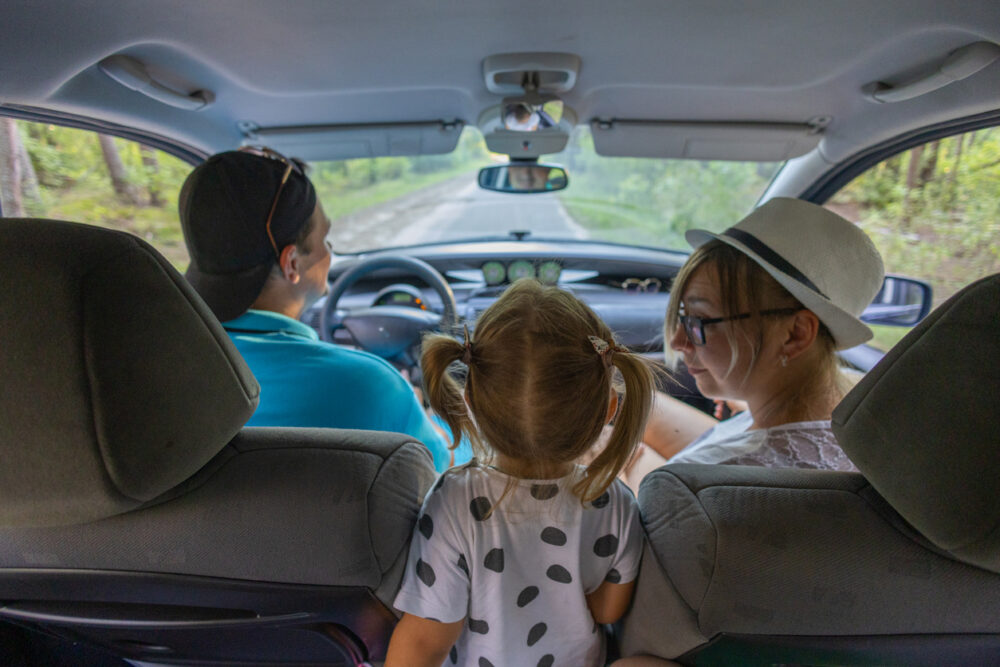
Families used to hop across nearby borders for quick day trips or weekend getaways. In the U.S., Canadians might head south for cheap shopping, while Americans drove north for a taste of Montreal or Vancouver. Crossing the border felt casual, often requiring little more than a driver’s license or simple paperwork.
Since increased security measures and passport requirements have tightened international travel, spontaneous border-hopping has mostly vanished. The added hassle of documentation, long wait times, and security checks makes quick cross-border trips less appealing. Families now need to plan these trips far in advance, stripping away the spontaneity that once made them a fun, easy option for a change of scenery.
9. The theme park road trip.

Before airline prices dropped, families would drive hundreds of miles to visit places like Disneyland, Six Flags, or Busch Gardens. The long drive became part of the adventure, and parents tried to stretch every dollar by staying at nearby budget hotels and packing their own food. Theme parks offered an all-day escape that felt magical and overwhelming in the best way.
Today, flying has made it easier to skip the long drive entirely, while the cost of theme park tickets, hotels, and food has skyrocketed. What was once a relatively affordable road trip for the average family now requires serious financial planning. Many families choose shorter park visits or skip them altogether in favor of other vacations that feel less stressful and expensive. The big cross-state theme park pilgrimage isn’t as common as it once was.
10. The drive-in movie vacation.

Some families planned weekend getaways around drive-in theaters, combining road trips with movies under the stars. Kids wore pajamas, parents packed snacks, and everyone piled into the car for a double feature. Drive-ins offered an affordable and memorable night out, blending entertainment with a bit of travel adventure.
The near extinction of drive-in theaters has made this kind of vacation nearly impossible. While a few still exist, most have closed due to changing land use, competition from streaming, and modern entertainment preferences. Families today are far more likely to stream movies in hotel rooms or on devices during the trip. The unique charm of planning a vacation around a drive-in theater has quietly slipped into history.
11. The fishing cabin escape.
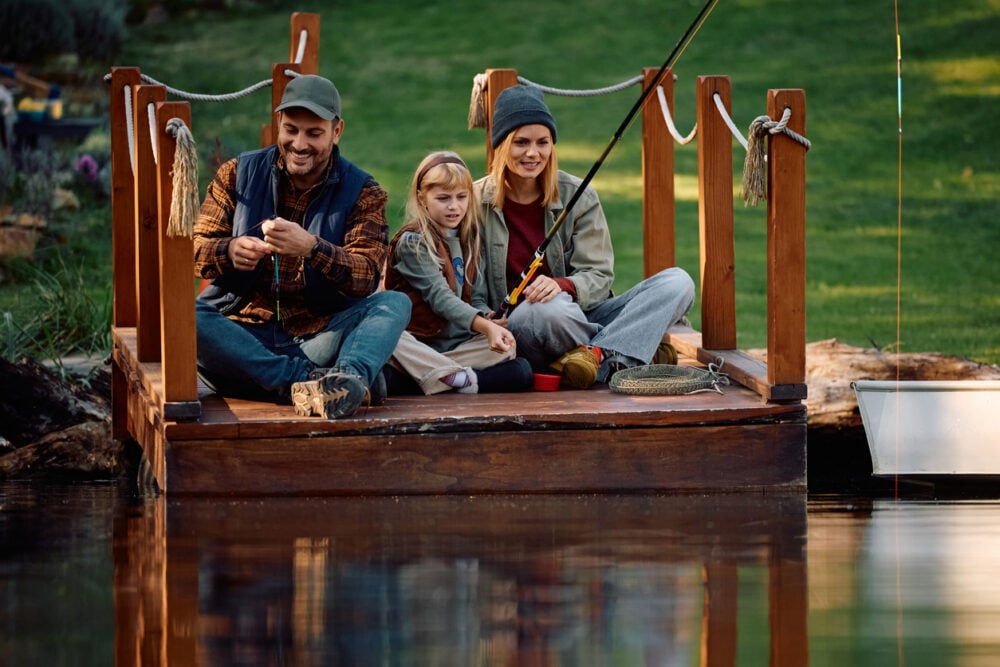
Renting a rustic cabin on a quiet lake was once a favorite way for families to relax together. Mornings started early with fishing trips, afternoons involved canoe rides, and evenings ended with grilled fish and simple games. The pace was slow, and the focus was entirely on nature, family bonding, and relaxation.
These days, fewer families are drawn to such low-tech vacations. The lack of Wi-Fi, limited cell service, and remote locations don’t fit easily into modern lifestyles. Many parents worry kids will be bored without constant stimulation. As a result, rustic fishing cabin escapes have given way to more high-energy vacations packed with planned activities, making these peaceful retreats increasingly rare.
12. The national park loop.
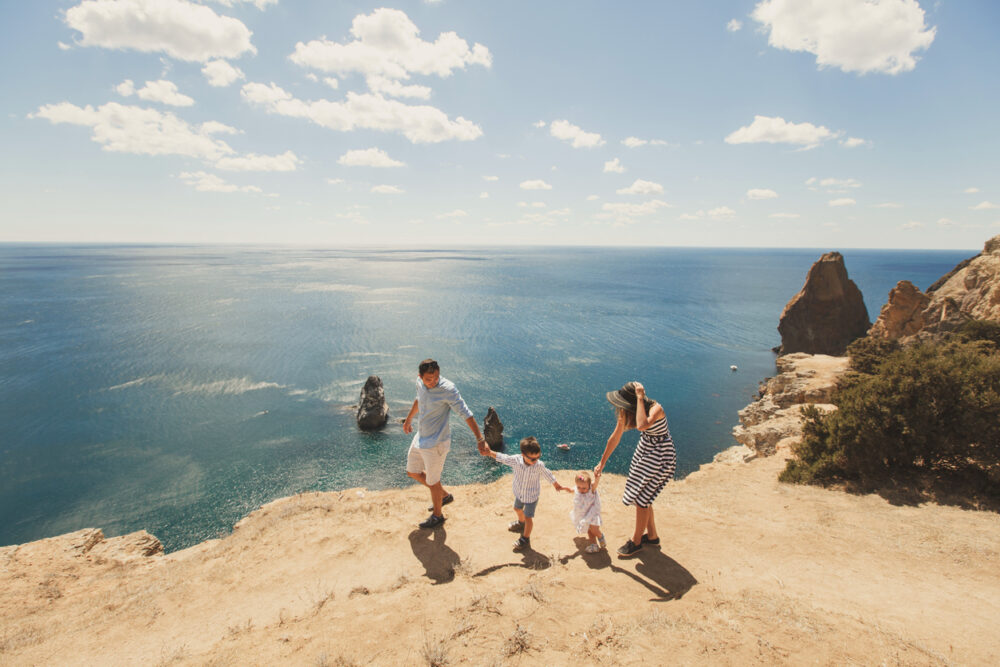
Families once planned multi-stop vacations around national parks, driving from one to the next and camping or staying in nearby lodges. Kids earned junior ranger badges while parents marveled at natural wonders. These trips provided breathtaking scenery and plenty of outdoor adventure, offering a blend of education and fun.
While national parks remain popular, the full loop-style vacation has faded for many families. Crowded parks, limited reservations, and rising costs make it harder to string multiple parks together in one trip. Families now often visit just one park for a few days instead of taking extended road trips. The classic national park loop, once a rite of passage for adventurous families, has become harder to pull off in today’s fast-paced, heavily booked world.
